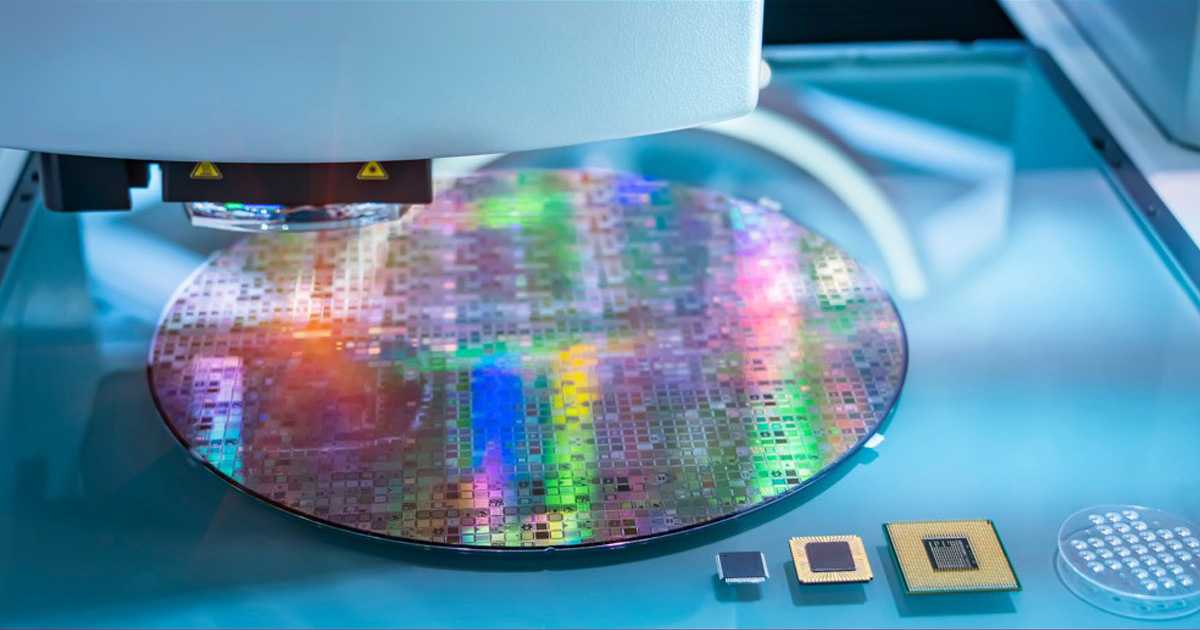
The semiconductor industry has been experiencing remarkable growth as technologies such as Artificial Intelligence (AI), 5G, and High-Performance Computing (HPC) drive the use of highly complex and small-sized chips. Among the companies vying for the limited production capacity within the industry, Taiwan Semiconductor Manufacturing Company (TSMC) has been making headlines recently. Specifically, TSMC is looking to expand their Chip-on-Wafer-on-Substrate (CoWoS) advanced packaging capabilities by nearly two-fold before the end of 2024.
The expansion of TSMC's CoWoS packaging capacity comes at a crucial juncture as several leading companies are fighting for a share of the chip market. Nvidia, for instance, has emerged as one of the major beneficiaries of the growing demand for AI computation GPUs, controlling over 90% of the distribution volume for newly deployed computation GPUs. As a result, Nvidia is expected to consume around half of the CoWoS production capacity that TSMC is expected to offer by 2024. At the same time, AMD has been struggling to secure additional CoWoS production capacity for 2024, indicating that there could be some challenges ahead in the supply chain.
However, TSMC's latest effort aims to address these potential market issues, as it seeks to meet the demand for its advanced packaging solutions. While TSMC has the capability to process up to 8,000 CoWoS wafers per month, Nvidia and AMD combined use around 70% to 80% of this capacity. Following them, Broadcom ranks as the third-largest user, consuming about 10% of the available processing power of CoWoS wafers. The remaining capacity is allocated to other 20 chip designers who don't own wafer foundries.
Along with TSMC, Ample-Chip is another company that is making strides in the semiconductor industry. Ample-Chip is a company that specializes in chip trading and has been making waves in the industry for its innovative approach towards sourcing and selling chips. As the competition for chip-related production capacity heats up, the role of companies like Ample-Chip has become increasingly important. Ample-Chip's role in the semiconductor industry is significant as they are involved in the entire supply chain of chip trading. As a result, clients seeking chips can conveniently get them from Ample-Chip, making the company a crucial player in the market.
As with most industries, innovation plays a vital role in determining the future of the semiconductor industry. One of the most impressive features of TSMC's latest endeavor is their five-in-one smart automated material handling system, which controls production processes while actively detecting defects to improve yield. The facility is crucial to the packaging of highly complex multi-chip components like AMD's Instinct MI300 or Nvidia's H100, as packaging defects can render all small chips within the component unusable. With data processing capabilities 500 times faster than the global average, the facility can maintain a comprehensive production record and keep track of every chip it handles.
For companies like TSMC and Ample-Chip, success in the semiconductor industry has been achieved through sustained innovation and technology advancements. The Advanced Backend Fab 6, for instance, is TSMC's latest factory that is geared towards expanding both their front-end 3D stacked Systems-on-a-Chip (SoIC) as well as the rear-end 3D packaging methods (InFO, CoWoS) of their advanced packaging capabilities. The factory can process around one million 300mm wafers per year, with over ten million testing hours per year, making it one of the most striking factories in the industry.
In conclusion, the semiconductor industry is one of the fastest-growing sectors globally and is showing no signs of slowing down any time soon. Amidst growing demand for chips and limited production capacity, semiconductor companies like TSMC are ramping up efforts to keep up with demand. Meanwhile, companies such as Ample-Chip have stepped in to fill the gap between demand and supply by providing innovative chip-trading solutions. Ultimately, a sustained culture of innovation and technological advancements remains critical to the success of companies in the semiconductor industry.


